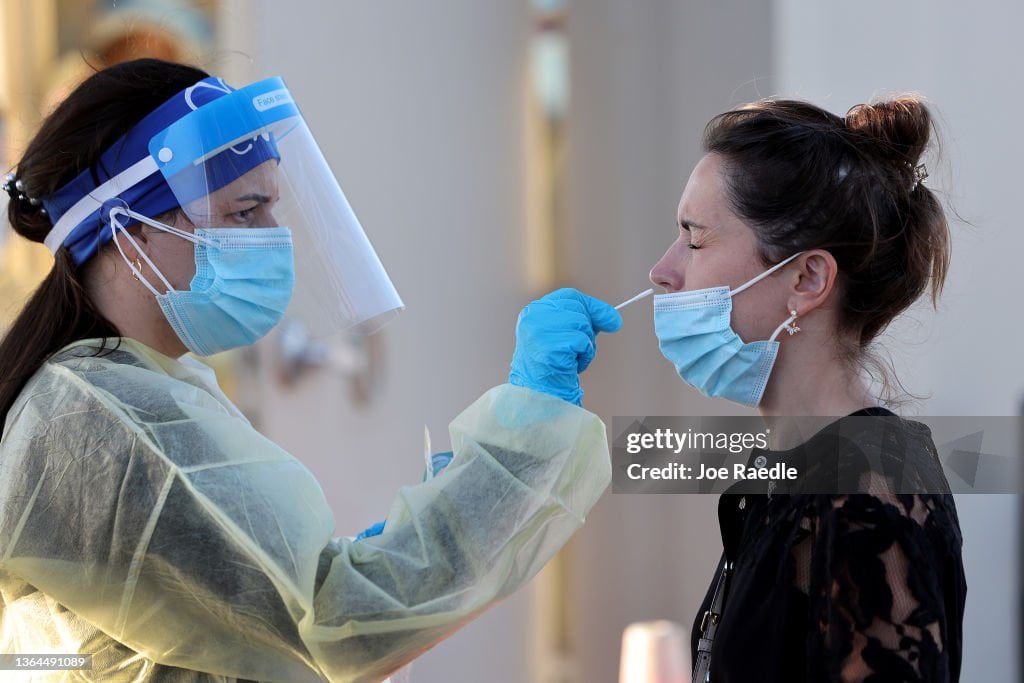This may be the COVID sign with the lowest-known recognition
The New York Times
In January of 2020, the man later known as the COVID-19’s first sufferer in the United States arrived at an urgent care facility.
The two symptoms, such as a fever and cough are among the signs that are COVID’s symptoms. However, the patient was also suffering from nausea for the past two days, and vomiting.
A majority people believe COVID is linked to respiratory ailments. However, certain people who contract from the virus don’t have a sore throat or discomfort within their bodies, or coughing, as stated by a doctor the Dr. Peter Chin-Hong. He is expert in infectious diseases at the University of California, San Francisco. Certain individuals may feel more as if they’ve contracted food poisoning than the rest of us.
Coronavirus is “like throwing a bomb in your body,” said Ken Cadwell, a professor of medicine at the University of Pennsylvania who studies the ways COVID affects stomachs. “You’re likely be feeling it in a variety of different organs including the lungs, but not only. “
With the increase in COVID cases and the”FLiRT” and “FLiRT” variants fueling yet another outbreak related to summer. This article will help you detect and treat more obscure signs of gastrointestinal illness.
Recognizing and Resolving Stomach Symptoms
For some, digestive symptoms can manifest within the first few days of an illness. After that, they get a fever and cough. However, a majority of people sufferers of stomach-related issues “never think of it as COVID,” Chin-Hong said.
Diarrrhea is one of the common stomach symptom of COVID, as Chin-Hong noted. Patients may have a loss of appetite, feel nausea, stomach pain, and nausea.
COVID might not appear identical each time you get sick, according to doctor. Davey Smith, an specialist in infectious diseases of the University of California, San Diego. It is possible to suffer symptoms of flu or cold during the course of one virus and then suffer from digestive issues next time. Paxlovid is an antiviral medication that reduces the likelihood of suffering from severe illness. It is also the cause of diarrhea.
Hydration is vital for anyone who suffer from COVID. But, drinking sufficient fluids is essential when you’re suffering from diarrhea or vomiting. When you’re struggling with a difficult time eating restrict yourself to easy food items like breakfast toast or bananas as per the doctor. Adrienna Jirik, a gastroenterologist at the Cleveland Clinic.
In the event that you have a shared bathroom with someone else, you have the option of taking steps to avoid having the bathroom contaminated by harmful particles within the garbage, for instance opening a door to boost the flow of air.
More on COVID-19
- This could be the COVID symptom that is most often ignored. symptoms
- If you’re confirmed to have COVID are it be traveled with?
- FLiRT and LB.1 variations that are driving COVID summer expansion
- This isn’t just a figment of your dreams: Some have been suffering from COVID for a second time.
- Seattle’s COVID summer storm is here. What are you aware of?
- HTML0Different COVID vaccination? Absolutely, this is the reason.
- The 2024 specific source for COVID symptoms, treatment, and prevention
- HTML0 Our collection of COVID-19 related news stories
A Refresher on Other COVID Symptoms
The most widespread strains present in the wild could cause similar symptoms to those that we’ve experienced in other viruses.
Alongside stomach discomfort, the majority of people suffer from constricted throats and an irritable ear as well as a swelling of the nose, headache or chills and muscle pains, cough or fever or fatigue, as well as tiredness. In extreme circumstances, they could have difficulty breathing. When people suffer from illness experience a loss of taste or smell the signs are less frequent like it was before the epidemic.
All of these symptoms may be present for a few days after a visit to someone who is suffering from this virus. If you suspect that you’ve contracted the virus you must look out for any indications such as stomach-related symptoms, Chin-Hong’s added.
“If everybody in your house has COVID and you have diarrhea, then you have to put two and two together,” the doctor told you.









